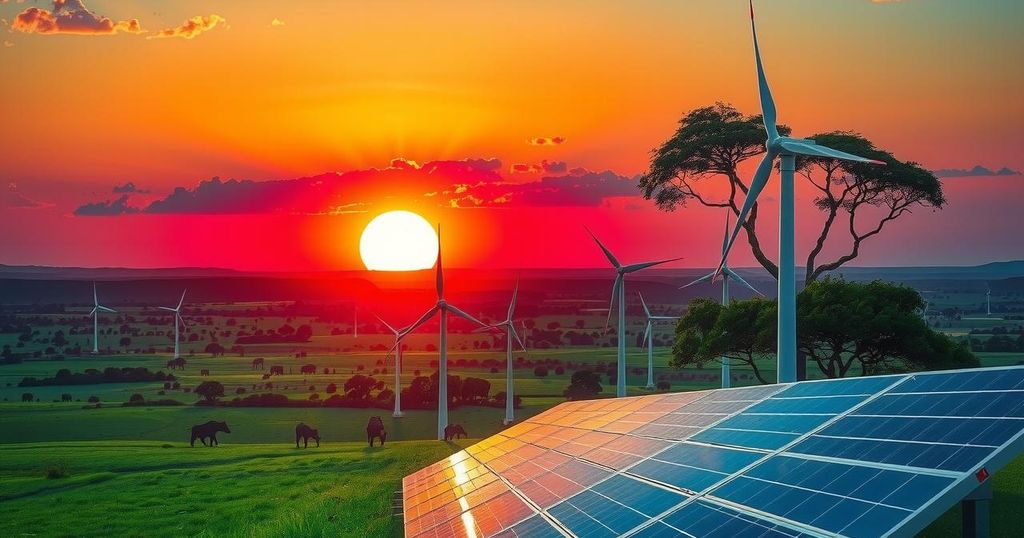President Trump’s withdrawal from the Paris Agreement poses serious challenges for Africa’s climate resilience. The decision jeopardizes crucial climate finance and support for renewable energy projects, thus threatening the continent’s fight against climate change. African leaders remain committed to climate action, emphasizing the need for international collaboration to overcome these setbacks.
On January 20, 2025, shortly after his inauguration, newly elected President Donald Trump issued an executive order to withdraw the United States from the Paris Agreement. This decision aimed to prioritize the interests of the United States and prevent undue burdens on the American populace. This marked another U.S. exit from the accord, generating significant global concern about its implications for international climate action, especially for vulnerable areas like Africa.
Africa, a region already at the forefront of climate change, became increasingly susceptible to its adverse effects. Contributing only 2-3% of global greenhouse gas emissions, the continent faces severe droughts, drastic cyclones, and erratic rainfall patterns. For millions in nations such as Ghana, Chad, and Somalia, rising temperatures and increasingly frequent natural disasters threaten food security and livelihoods, exacerbated by the withdrawal of crucial support from the Paris Agreement.
A primary repercussion of the U.S. exit is the withdrawal of pledged climate finance, which under the Paris Agreement, aimed to provide $100 billion annually from developed nations to assist developing countries. This commitment was recently raised to $300 billion by 2035. The United States had previously contributed significantly, including a $1 billion donation to the Green Climate Fund in 2014, now replaced by uncertainty over future funding for African nations to combat climate impacts.
The U.S. decision disrupts the global energy landscape, risking Africa’s economic development by favoring fossil fuels over renewable energy investments. Despite notable advances in renewable energy by countries like Kenya and Morocco, the lack of U.S. support may hinder the necessary funding and technological backing in this clean energy transition. Consequently, African nations might regress to reliance on fossil fuels, aggravating their climate vulnerabilities.
Trump’s move sets a dangerous precedent, potentially emboldening other nations to renege on their commitments, thus undermining global accountability for emissions reductions. For African countries, this would diminish efforts to achieve crucial climate goals essential for safeguarding their vulnerable populations.
In response to this setback, African leaders and advocates remain undeterred, reaffirming their dedication to the Paris Agreement. Countries such as Rwanda and Ethiopia continue to pursue progressive climate policies, emphasizing investment in clean energy and adaptation strategies. However, the support of the international community remains vital to avert exacerbating the consequences of this U.S. decision.
The withdrawal represents a significant challenge but should not equate to defeat. Africa’s future hinges on effective climate action, international cooperation, and persistent investment in climate resilience. While the U.S. may step back from its responsibilities, global solidarity must prevail to ensure the continent’s continued fight against climate change.
President Trump’s withdrawal from the Paris Agreement presents significant obstacles to Africa’s climate resilience. The loss of U.S. commitment to climate finance, energy investments, and global accountability highlights Africa’s urgent need for international support. Despite these challenges, African nations remain committed to implementing ambitious climate policies. The path ahead demands global cooperation to ensure a sustainable and secure future for vulnerable communities in Africa.
Original Source: www.myjoyonline.com






